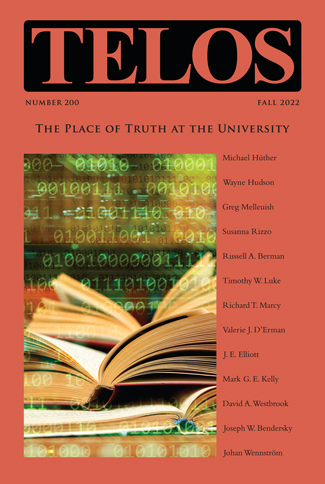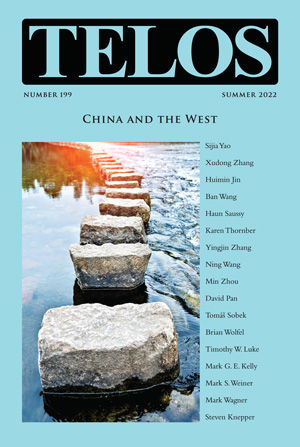In his response to my post last week on affirmative action, Florindo Volpacchio emphasizes that the goal of affirmative action is “to recognize the social pathology of discrimination and inequality that privileged race and sexual identity to begin with.” It is certainly important to remember this history and its effects on present conditions, and Volpacchio rightly points out past injustices, including slavery and segregation. Yet those injustices are also clearly in the past. There are no longer any legally enforced forms of segregation and discrimination against Blacks, and the United States can be proud of the progress that has been made. But while Volpacchio seeks to judge affirmative action based on its symbolic intent, its practical effects cannot be ignored, especially as they perpetuate the type of discrimination based on race that they are meant to oppose. Since the history of racial injustice involved the categorization and differential treatment of people based on their race, the resistance to this history must reject such differential treatment and affirm the principle of equality before the law. Yet affirmative action re-establishes racial discrimination as a valid policy for college admissions and hiring. Though this policy favors Blacks today, this can only be done at the cost of disfavoring others, to the point where it disfavors Asian Americans in comparison to both Blacks and Whites. As Thomas Sowell has demonstrated through his careful and extensive research, the track record of worldwide attempts to engineer equality through a set of reverse discriminatory practices is in fact dismal, leading consistently to a skewing of benefits to the wealthier members of the groups they are meant to assist as well as to growing identity-based polarization and even civil war.
|
After decades of contention, most observers agree that affirmative action in the form of racial preferences in college admissions will be declared unconstitutional by the U.S. Supreme Court. There are indeed few arguments left to support it. A supermajority of Americans opposes it, with 74 percent of Americans, including 58 percent of Blacks, indicating in the most recent Pew Research poll that race or ethnicity should not be a factor in college admissions. Racial preferences do not help the disadvantaged. As even a supporter of affirmative action writes: “Seventy-one percent of Harvard’s Black and Hispanic students come from wealthy backgrounds. A tiny fraction attended underperforming public high schools. First- and second-generation African immigrants, despite constituting only about 10 percent of the U.S. Black population, make up about 41 percent of all Black students in the Ivy League, and Black immigrants are wealthier and better educated than many native-born Black Americans.” As these statistics indicate, the racial categories do not correlate with disadvantaged status. They are even more problematic as a proxy for diversity. It is not clear why some markers of identity such as race and ethnicity should be considered significant for viewpoint diversity while others, such as religion, should not. Politically, university faculty have become much less diverse in terms of party affiliation over the last several decades of affirmative action policy, with a documented 11.5 to 1 ratio of Democrats to Republicans at leading universities in 2016. Moreover, because the defense of affirmative action has become a marker of anti-racism, the university support for the policy has suppressed opposing viewpoints by branding them as racist or sexist and not worthy of discussion, thus further reducing viewpoint diversity by encouraging pervasive self-censorship. Volodymyr Zelensky has virtually single-handedly demonstrated the world-historical importance of sovereignty and its mechanisms. Before his courageous insistence on Ukrainian sovereignty, the world—including the United States, with its offer of a helicopter ride for Zelensky out of Kyiv—was already treating the Russian subjugation of Ukraine as a fait accompli and the continuation of business as usual. Russia was using in Ukraine the methods that it had already successfully practiced in Chechnya, Syria, and Belarus while the rest of the world stood by to allow such methods to become normalized. By taking his stand in Kyiv, Zelensky was declaring to the Ukrainian people and the rest of the world that Russia’s invasion was in fact not a normal action that had to be accepted. Suddenly, Russia’s years-long undermining of the idea of popular sovereignty in different parts of the world had been called out as a transgression, leading to global insights about recent history and our role in its development. The nations of Europe above all, but also the United States, have had to face the extent to which their energy policies were contributing to Russia’s reshaping of global norms. Zelensky has forced us to take a stand one way or the other in deciding the political shape of the world for the foreseeable future. Telos 200 (Fall 2022): The Place of Truth at the University is now available for purchase in our store. Individual subscriptions to Telos are also available in both print and online formats.
|
||||
|
Telos Press Publishing · PO Box 811 · Candor, NY 13743 · Phone: 212-228-6479 Privacy Policy · Data Protection Copyright © 2025 Telos Press Publishing · All Rights Reserved |
||||




